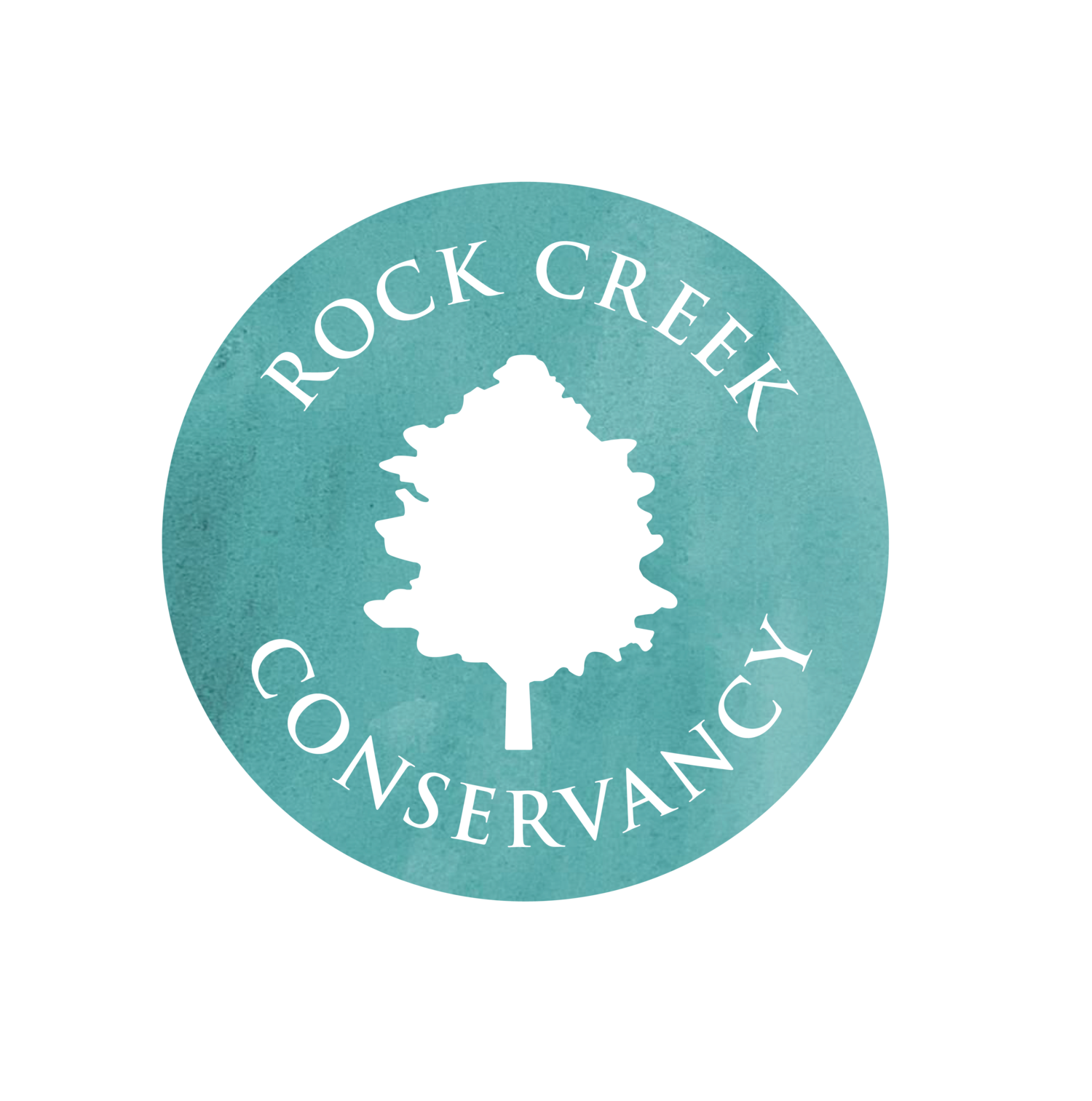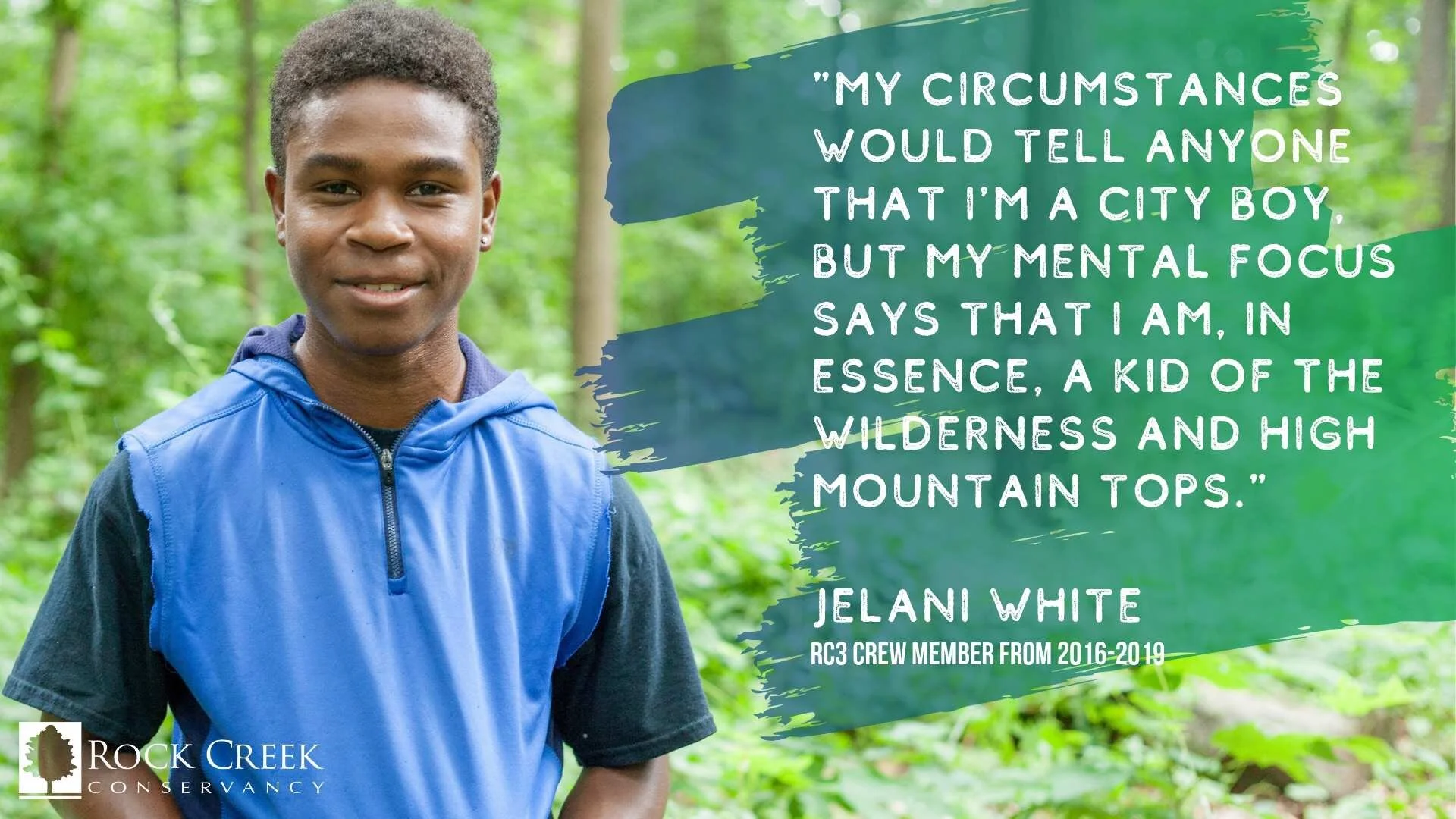Community Spotlight
Jelani White, RC3 Crew Member
“Sometimes, I say to myself that I must have been born in the wrong geographical setting. My circumstances would tell anyone that I'm a city boy, but my mental focus says that I am, in essence, a kid of the wilderness and high mountain tops. Growing up, Rock Creek provided the wilderness I needed."
For five summers, Rock Creek Conservancy has cultivated the next generation of environmental stewards through Rock Creek Conservation Corps (RC3)! This program employs high school students from communities that are underrepresented in conservation. The students work with Rock Creek Conservancy to complete critical conservation projects throughout the Rock Creek watershed. RC3 partners with DC’s Mayor Marion S. Berry Summer Youth Employment Program to provide stipends for all participants.
Over the past four summers, 120 crew members have graduated from RC3, leaving our favorite park better than they found it. From installing green infrastructure to removing invasive plants, these hard-working young people do it all, and they do it for Rock Creek.
For some RC3 crew members, the program provides a quick foray into conservation and a productive and fun way to spend the summer. For others, it sparks a passion for taking care of the environment. RC3 crew member Jelani White is an excellent example of the latter.
Jelani first attended RC3 in 2016 as a high school junior at E.L. Haynes Public Charter School and is now pursuing a four-year degree in Environmental Science from Tuskegee University. Even though he’s getting his education in Alabama, he keeps coming home to Rock Creek Park. In 2019, Jelani joined the RC3 crew for his fourth year.
We wanted to learn what encourages him to come back year after year, so we visited his RC3 crew in the field and asked him some questions! Read our interview below to learn more.
Interview with Jelani White
Jelani White reflects on his time spent in Rock Creek Park growing up in Washington, DC. Photo credit: Rock Creek Conservancy | Katy Cain
Katy Cain (KC): Hi Jelani, how would you like to introduce yourself?
Jelanie White (JW): Hi, my name is Jelani White, and I attend Tuskegee University. I grew up in Washington, DC.
KC: Let’s start with a little information about you! Right now, you are working with Rock Creek Conservancy as an RC3 crew member for the fourth year in a row.
As Rock Creek Conservancy’s longest-serving RC3 crew member, you clearly love Rock Creek Park! Why is this place important to you?
JW: Rock Creek Park is actually my favorite place in DC because I have always had that feel for the wilderness that this park provides.
When we were really young, my father would take my brother and me to Rock Creek Park. It was where I hiked my first trail, learned to ride a bike, and saw most of my first wilderness animals. Now, when I'm in DC, I take full advantage of Rock Creek Park. I run, ride my bike, explore, and clear my mind there.
Sometimes, I say to myself that I must have been born in the wrong geographical setting. My circumstances would tell anyone that I'm a city boy, but my mental focus says that I am, in essence, a kid of the wilderness and high mountain tops. Growing up, Rock Creek provided the wilderness I needed.
KC: Is it this love of Rock Creek’s urban wilderness that inspired you to get involved with Rock Creek Conservancy and the Rock Creek Conservation Corps?
JW: Yeah.
KC: Could you describe the RC3 program in one sentence?
JW: Sure. RC3 is a program which targets youth to learn more about the original building unit— Mother Nature—and how that unit operates.
KC: It’s your fourth year working with us. Why do you continue to stay involved with RC3 and Rock Creek Conservancy?
JW: As I’ve worked with this program I’ve gained more responsibility and knowledge, so now I get to help teach new RC3 crew members all about the environment and Rock Creek.
To me, this work is essential simply because [the youth] are our future, and if they don't stand up to the plate, we will continue to make environmental mistakes. We can't go back to when people just reacted and never thought about the long-term consequences that our lifestyle would have on the planet. We have to look forward. We have to plan. That's why this program is important, and that's why I'm still involved.
Jelani points out invasive porcelainberry vines growing in Rock Creek Park as he discusses some simple actions people can take to protect Rock Creek. Photo credit: Rock Creek Conservancy | Katy Cain
“Through the program, I learned that even simple actions like removing invasive plants, planting trees, reducing your carbon footprint, and installing rain gardens could make a difference.”
KC: Do you have any advice for RC3 students — or the world at large — for how they can help take care of the environment and Rock Creek?
JW: Talk to your friends! In my opinion, it starts with education.
We need to educate and inform the general public about steps that already exist to take care of the environment. Programs like RC3 help with that.
Through the program, I learned that even simple actions like removing invasive plants, planting trees, biking instead of driving, and installing rain gardens could make a difference. I am learning even more as a student of environmental sciences.
With the right information, humanity can start to come up with brand new ways to work in alignment with the natural world — instead of against it — as we evolve and grow as a society.
KC: Considering your RC3 experience and your current environmental science education, what do you see as the most significant issues facing the environment now?
JW: One of the biggest issues worldwide is the energy we use. Relying on fossil fuels is corrupting the balance of the planet. But, I feel hopeful as the next generation — my generation — starts learning and making decisions. Science has opened the door to a series of less harmful, sustainable energy sources like solar, water, wind, geothermal, and even magnetism. We need to walk through those open doors as a society for the sake of our future on this planet.
KC: Thanks for taking the time out of your schedule (and restoration work) to talk to us.



